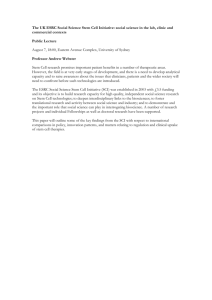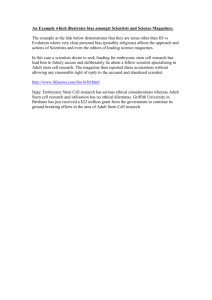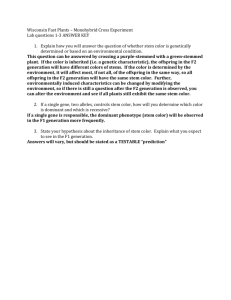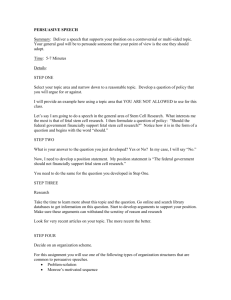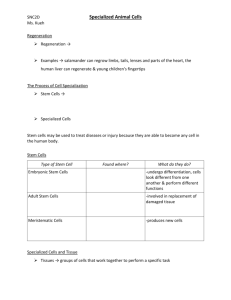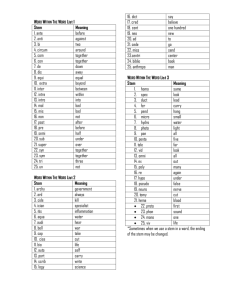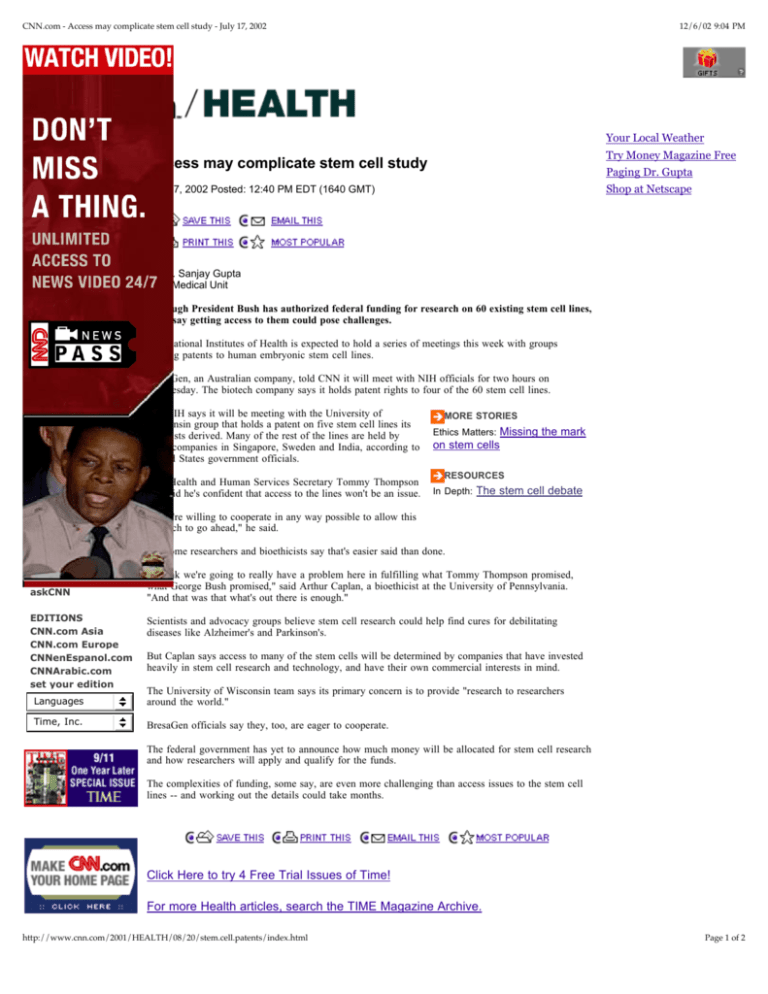
CNN.com - Access may complicate stem cell study - July 17, 2002
12/6/02 9:04 PM
! Your Local Weather
! Try Money Magazine Free
! Paging Dr. Gupta
! Shop at Netscape
SEARCH GO
MAIN PAGE
WORLD
U.S.
WEATHER
BUSINESS
SPORTS
POLITICS
LAW
SCI-TECH
SPACE
HEALTH
ENTERTAINMENT
TRAVEL
EDUCATION
IN-DEPTH
Access may complicate stem cell study
July 17, 2002 Posted: 12:40 PM EDT (1640 GMT)
By Dr. Sanjay Gupta
CNN Medical Unit
Although President Bush has authorized federal funding for research on 60 existing stem cell lines,
some say getting access to them could pose challenges.
The National Institutes of Health is expected to hold a series of meetings this week with groups
holding patents to human embryonic stem cell lines.
BresaGen, an Australian company, told CNN it will meet with NIH officials for two hours on
Wednesday. The biotech company says it holds patent rights to four of the 60 stem cell lines.
VIDEO
LOCAL
CNN NEWSWATCH
E-MAIL SERVICES
CNNtoGO
ABOUT US/HELP
CNN TV
what's on
show transcripts
CNN Headline News
CNN International
askCNN
EDITIONS
CNN.com Asia
CNN.com Europe
CNNenEspanol.com
CNNArabic.com
set your edition
The NIH says it will be meeting with the University of
Wisconsin group that holds a patent on five stem cell lines its
scientists derived. Many of the rest of the lines are held by
other companies in Singapore, Sweden and India, according to
United States government officials.
U.S. Health and Human Services Secretary Tommy Thompson
has said he's confident that access to the lines won't be an issue.
"They're willing to cooperate in any way possible to allow this
research to go ahead," he said.
MORE STORIES
Missing the mark
on stem cells
Ethics Matters:
!
RESOURCES
In Depth:
The stem cell debate
!
But some researchers and bioethicists say that's easier said than done.
"I think we're going to really have a problem here in fulfilling what Tommy Thompson promised,
what George Bush promised," said Arthur Caplan, a bioethicist at the University of Pennsylvania.
"And that was that what's out there is enough."
Scientists and advocacy groups believe stem cell research could help find cures for debilitating
diseases like Alzheimer's and Parkinson's.
But Caplan says access to many of the stem cells will be determined by companies that have invested
heavily in stem cell research and technology, and have their own commercial interests in mind.
Languages
The University of Wisconsin team says its primary concern is to provide "research to researchers
around the world."
Time, Inc.
BresaGen officials say they, too, are eager to cooperate.
The federal government has yet to announce how much money will be allocated for stem cell research
and how researchers will apply and qualify for the funds.
The complexities of funding, some say, are even more challenging than access issues to the stem cell
lines -- and working out the details could take months.
!!
!!
!!
!!
Click Here to try 4 Free Trial Issues of Time!
For more Health articles, search the TIME Magazine Archive.
http://www.cnn.com/2001/HEALTH/08/20/stem.cell.patents/index.html
Page 1 of 2
CNN.com - Access may complicate stem cell study - July 17, 2002
12/6/02 9:04 PM
RELATED STORIES:
• Bush stands pat on stem cell policy
August 13, 2001
• White House defends stem cell decision
August 13, 2001
• Reporter: Stem cell decision may open door for lawsuits
August 11, 2001
• Bush to allow limited stem cell funding
August 10, 2001
RELATED SITES:
• Stem Cells: A Primer, National Institutes of Health, May 2000
• Welcome to BresaGen
• University of Wisconsin-Madison
Note: Pages will open in a new browser window
External sites are not endorsed by CNN Interactive.
HEALTH TOP STORIES:
•
•
•
•
•
Cloned cells may re-boot immune system
Union won't oppose smallpox plan
FDA: Snacks' possible carcinogens vary
Mouse genetic code published
Irradiated patients set off security devices
(More)
!Search
Back to the top
CNN.com
!
Find
!
© 2002 Cable News Network LP, LLLP.
An AOL Time Warner Company. All Rights Reserved.
Terms under which this service is provided to you.
Read our privacy guidelines. Contact us.
http://www.cnn.com/2001/HEALTH/08/20/stem.cell.patents/index.html
Page 2 of 2


